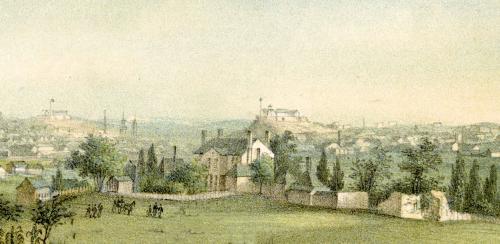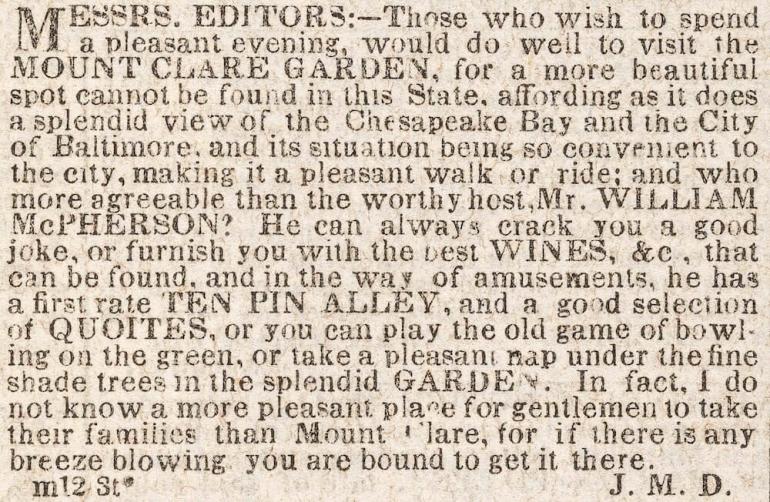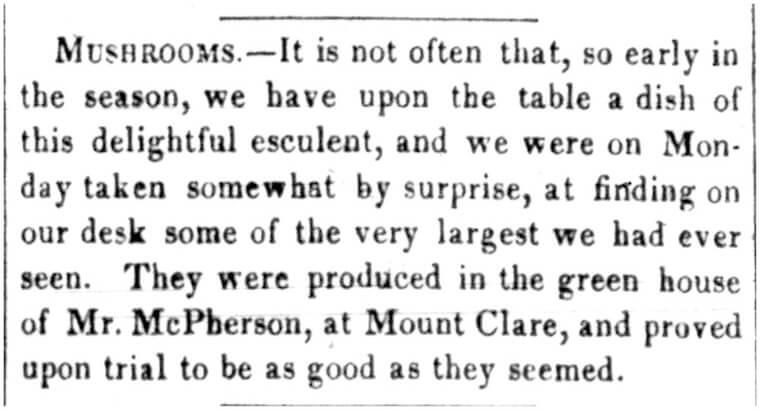A cropped portion of a print of the Union encampment on the grounds of Mount Clare showing McPherson’s Hotel. Courtesy of the Library of Congress.

Hotel
Mount Clare ended service as a single-family home after the third generation of Carrolls and their enslaved laborers moved out, circa 1836. James Carroll Jr. leased the home to at least two hotel operators for $25 per month. Enslavement at Mount Clare likely ended at this point. The hotel operators do not appear to have held slaves and archeology reveals that artifacts began to accumulate on the property in the 1830s because the orchards and grounds were no longer being meticulously maintained and reserved for the private use of one family.
McPerson’s Hotel
William McPherson ran McPherson’s Hotel at Mount Clare from 1836 to about 1854. During his proprietorship, McPherson grew and sold mushrooms in the Margaret’s still-operating greenhouse, staged target shooting contests for sharpshooters, built a ten-pin bowling alley to supplement the bowling green, and marketed the stunning view from the cascading gardens. His only daughter Joanna was married at Mount Clare on May 10th, 1849.
Mount Clare House
George Sugden ran a hotel or boarding house at Mount Clare from 1854 - 1867. During the Civil War, officers likely stayed in the mansion while soldiers created two large encampments on Carroll property. Sugden had previously run the Stag Hall Coffee House on Hanover Street, where he installed a ten-pin bowling alley and “offered all kinds of refreshments” including “oysters, beefsteaks, and welch rarebits” and kept only the “best qualities of ales, wines, and liquors.” Presumably, he continued these offerings at Mount Clare House.




